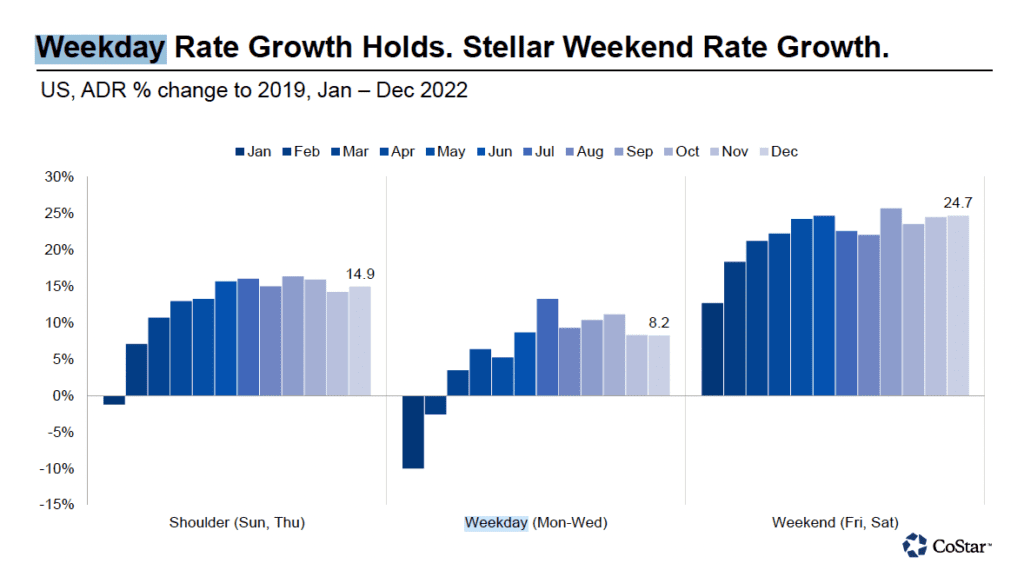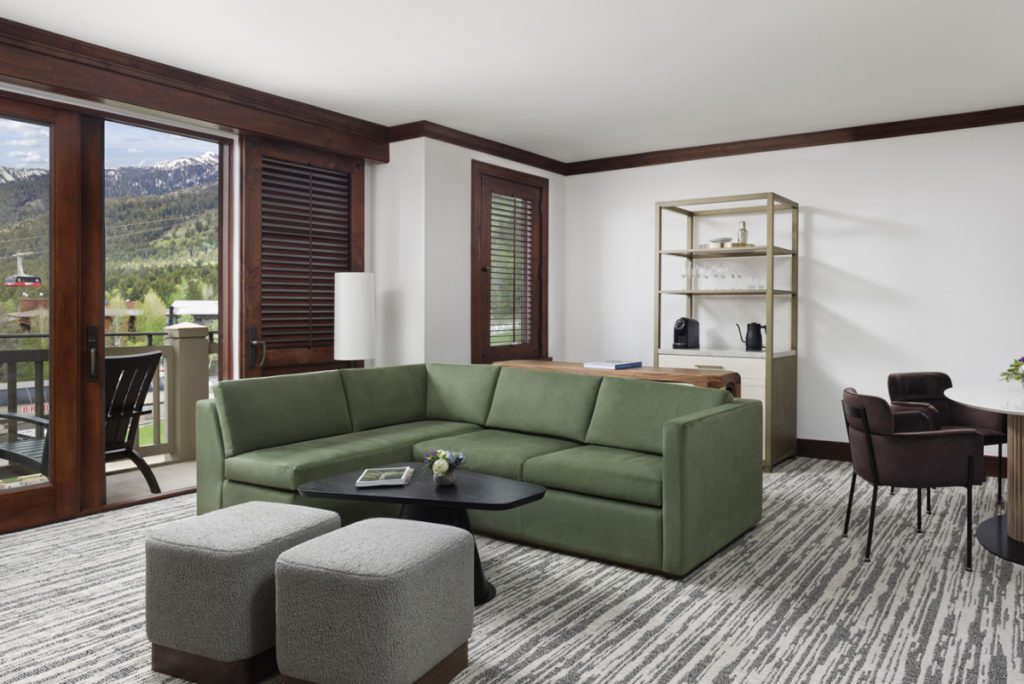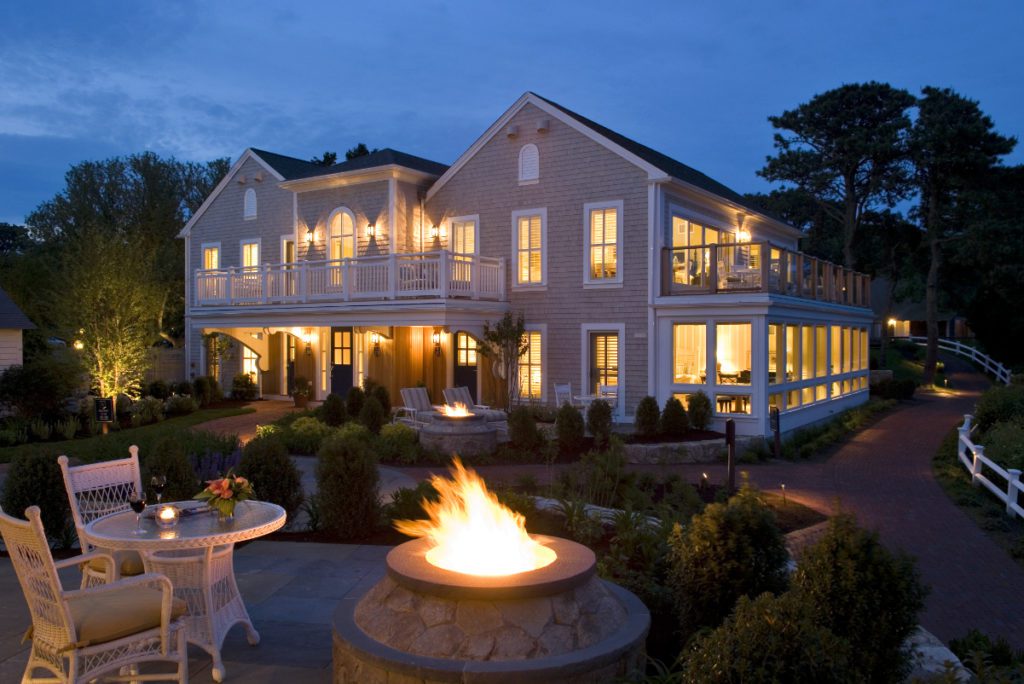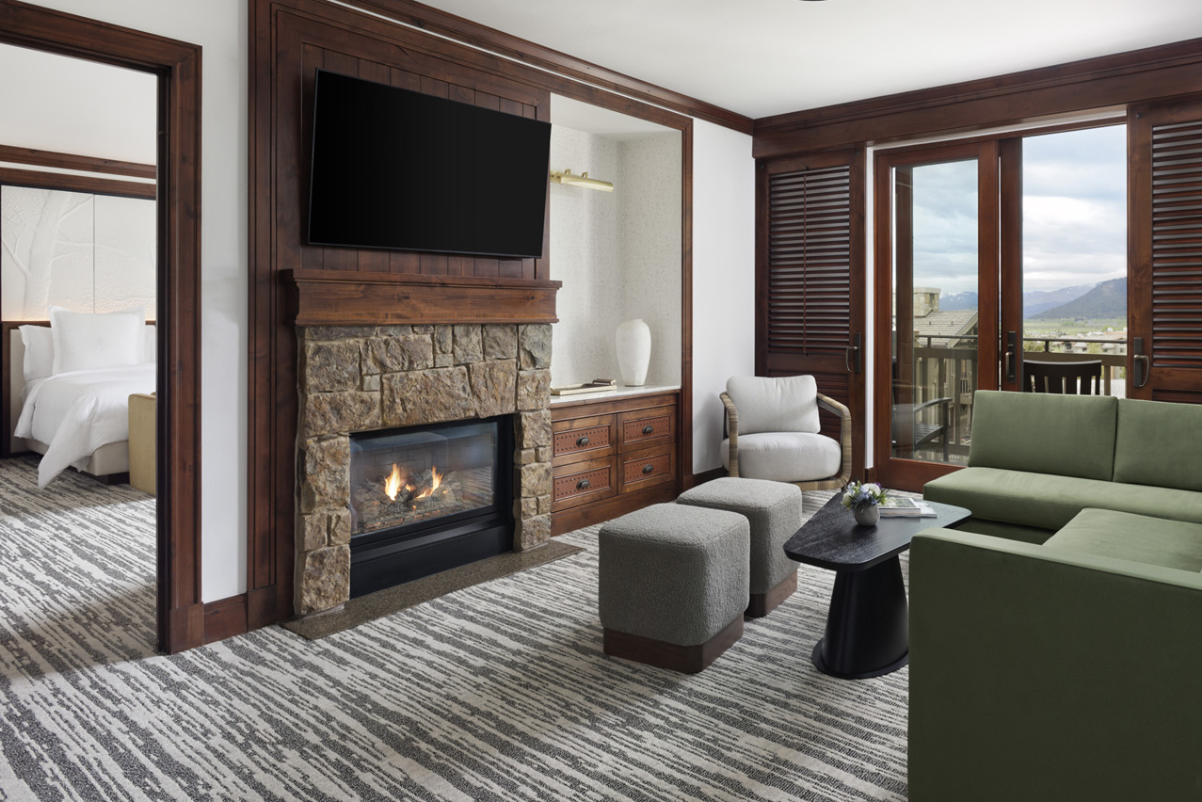Skift Take
Staying open year-round helps many resort destinations with staffing and attracting guests in times of year that had been thought of as shoulder season or off-season before the pandemic.
The adage “If you build it, they will come” has multiple meanings for Cory Carlson, regional marketing director at Four Seasons Resort and Residences Jackson Hole.
Last year’s renovation of guestrooms and suites brought an influx of interest on social media — and reservations. And in the past couple of years, Carlson and his team noticed that more potential guests were clicking the online booking calendar, trying to reserve dates when the resort was traditionally closed.
“Jackson Hole is becoming more robust, and we kept seeing November becoming very apparent as a time people wanted to be here,” Carlson said.
That, combined with data about the number of passengers on daily flights into the market, were the deciding factors for Carlson and his team.
Data from analytics firm Cirium‘s Diio service that Skift checked suggested there’s a lot of variance by day and season. On a Monday in early February ski season, Jackson Hole had 1,687 departing seats across airlines American, Delta, United, and Alaska. But during shoulder season last year, it was only about 800.
“We said, we need to give this a try,” Carlson said. “It’s a huge success story for us.”
The Four Seasons resort doubled its occupancy percentage for the entire month of November, as compared to the single-digit percentage when it was only open for Thanksgiving in previous years.
Seasonal Shifts
The whole travel industry is grappling with subtle changes to seasonal travel demand. As Skift has noted, blended travel has come of age as people mix business and leisure trips, and U.S. airlines saw last year off-peak travel bookings coming in higher for both pre-summer weeks and midweek days.

Labor Advantage
Four Seasons Jackson Hole joins a burgeoning number of formerly seasonal properties open year-round, offering guests rates that are hundreds of dollars less per night than in high season – and offering hotels operational wins.
Keeping Pelham House Resort in Dennis Port, Massachusetts, open year-round has many benefits, said managing partner John McCarthy. But unequivocally the primary one is to combat massive seasonal labor challenges in Cape Cod.
“The biggest reason we stand by staying open year-round is for our staffing. Once the high season starts, we’re not starting from zero and having to build up momentum again because we’ve lost people and have to train new ones,” McCarthy said. “That’s if we can find them.”
In the next town over, EOS Hospitality reopened Wequassett Resort & Golf Club this month as a year-round property. Wequassett’s 27 oceanside acres formerly offered hundreds of workers seasonal employment just April through November, with an impressive year-over-year employee return rate of 60 percent, said general manager Alton Chun.
But Chun still envisions fewer staffing challenges at the resort – ranked one of the region’s top employers by the Boston Globe – thanks to being open-year-round.
“These are sustainable jobs – but now we’re able to offer employees more opportunities for consistency, and support the local economy,” said Chun.
It’s not just a U.S. phenomenon with its different wage laws to Europe. Croatia, Falkensteiner Hotels & Residences has partnered with Grabahome to fill its properties with remote workers during the low season in another response to seasonal demand shifts.

Consistency Is Key
Chun and the Wequassett leadership team also believe that a sense of “consistency” will extend to guests who interact with the same staff whether they visit in winter or summer. Offering lower rates during the off-season is another way to build customer loyalty while potentially enhancing interest in the high season too, said McCarthy.
It’s what guests do when visiting the Cape properties that’s very different in January versus June. At Pelham House, McCarthy and his team invested in an iceless indoor curling rink to fill 3,000-square feet of mostly unused ballroom space. Families, bachelorette parties, and curious couples can reserve an overnight to try their hand at the Olympic sport while listening to live music. They can order rinkside food and drinks, or venture to The Rooftop restaurant overlooking Nantucket Sound, or settle in at Instagram-worthy fire pits to sip cocoa or roast marshmallows.
“It’s so important to be experience-driven,” said McCarthy. “If you don’t offer live music, or great brunches, or dueling pianos — things to do, broadly — then you’re just not going to get people to spend two nights like they would in summertime, when all you do is hit the beach and the pool.”
As for the Wequassett also opening year-round nearby? The more the merrier, they said.
“I think collectively, we are all building something here,” said McCarthy, of a strong local community and economy. He envisions Wequassett guests visiting Pelham House for dinner or a cocktail, and vice versa, rather than anyone staying on-site for their entire visit.
Wequasset is not alone in leaning into its suite fireplaces to market an off-season experience.

In Kennebunkport, Maine, the Yachtsman Hotel & Marina Club became a year-round hotel in 2022. Its first winter open is this year, with most interest in bookings around Harborfront Bungalows’ new gas-burning fireplaces.
For its first two winters open since opening its doors seasonally in 1909, The Otesaga Resort Hotel in Cooperstown, N.Y., put special focus on marketing its suite and common area fireplaces.
Other activities skew a little more exclusive. Four Seasons’ “day with wolves” experience in Jackson Hole is seasonal. The peak opportunity to spot gray wolf packs in their natural habitat aligns perfectly with the resort’s new opening during November, said Carlson.
Based on the success of their first off-season open, Carlson sees new opportunities to increase his off-season occupancy rate even more.
“We’ve already been able to put group business in the books for this November,” he said. “There are (guest) opportunities from a pricing standpoint, but also from an exclusivity standpoint. People are wanting to come and really capitalize on that opportunity to kind of ‘own’ the resort for their group.”
Daily Lodging Report
Essential industry news for hospitality and lodging executives in North America and Asia-Pacific. Delivered daily to your inbox.
Have a confidential tip for Skift? Get in touch
Tags: blended travel, four seasons, future of lodging, seasonal travel habits, seasons
